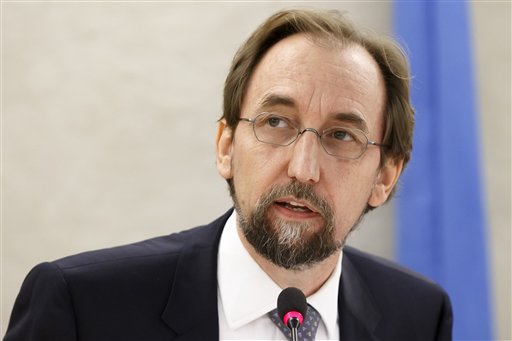UN Human Rights chief takes US to task over border policy
GENEVA — Outgoing United Nations High Commissioner for Human Rights Zeid Ra’ad Al Hussein, has commended Sri Lanka for increasing cooperation with the Council. This was his last global update to the Human Rights Council in a regular session.
Sri Lanka has hosted at least five visits by thematic mandates during the last five years, he said. Among other countries which have done so are Argentina, Australia, Azerbaijan, Brazil, Chile, Georgia, Ghana, Greece, Honduras, Italy, Kazakhstan, Mexico, Republic of Korea, Serbia, Tunisia, Ukraine, the UK and the US.
Hussein said there were increasing attacks on the notion of universal human rights and attempts to brand it as musing picked from Western imagination. “Had that been the case – had the countries that joined the organization believed they were being pinned to alien, Western values – why then did they not stream toward the exits? Why did they not withdraw from the UN? But then why is the Universal Declaration, and the whole body of human rights law that followed it, the object of so much attack now –- not only from the violent extremists, like the Takfiris, but also from authoritarian leaders, populists, demagogues, cultural relativists, some Western academics, and even some UN officials?”
As part of his final global update, the UNHRC chief also voiced his deep concern over recently-adopted United States border protection policies that have seen hundreds of migrant children forcibly separated from their parents.
“In the past six weeks, nearly two thousand children have been forcibly separated from their parents,” UN High Commissioner for Human Rights Zeid Ra’ad Al Hussein said in his opening remarks to the 38th session of the Human Rights Council in Geneva – the last session before his four-year term expires in August.
Article continues after this advertisementMr. Zeid said that the American Association of Pediatrics had called it a cruel practice of “government-sanctioned child abuse” which may cause “irreparable harm” with “lifelong consequences”.
“The thought that any state would seek to deter parents by inflicting such abuse on children, is unconscionable,” he said, calling on the United States to immediately put a stop to the policy, and ratify the Convention on the Rights of the Child.
